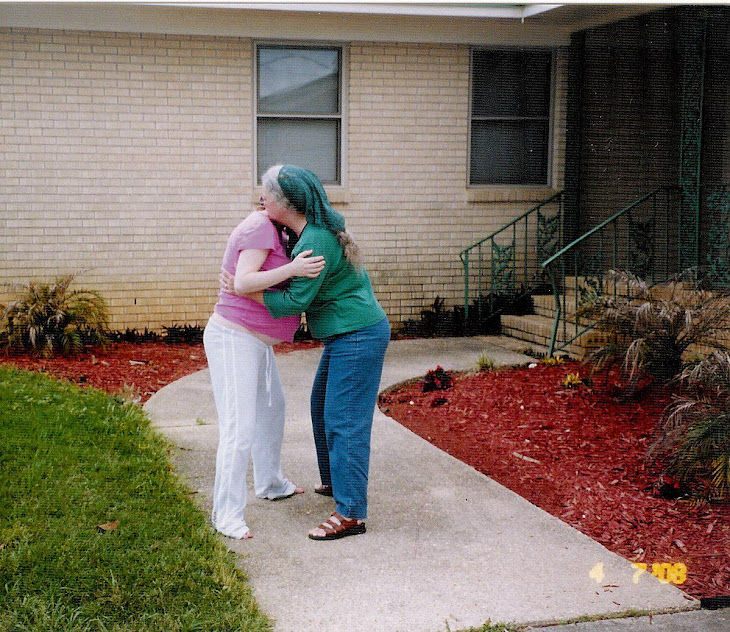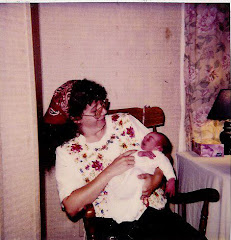Women who are looking towards pregnancy and those in the midst of pregnancy have a friend just waiting to get involved: dark leafy green veggies. Spinach, kale, collards, mustard greens, turnip greens, broccoli, brussels sprouts, red leaf lettuce, even yard greens such as dandelion, there are many to choose from. Don't confuse these with any old green vegetable, such as green beans, or with iceburg lettuce or celery. These have leaves - one way or another and they have to be dark. With the large variety available, there's likely to be at least one or two each woman likes. These power-packed vegetables help keep the body healthy and are very helpful with growing a baby in the womb. Though many of the nutrients and benefits I'll discuss are also found in other foods, I want to focus on the amazing benefits of this class of food.
Look at quality prenatal vitamins and then check the nutrients found in dark leafy green veggies: calcium; magnesium; molybdenum; vitamin K; Riboflavin (B2); Folate; most B vitamins except B12; vitamin A; vitamin C. These foods are chock full of what we want to have for our growing babies, but in a much tastier, easier-to-assimilate package.
Variety of nutrients/Variety of benefits:
Though most grain products are now supplemented with the artificial form of folate, folic acid, we can get all the benefits of folate from a great source, dark leafy green vegies. Personally, I think natural is best. So, to me, simply choosing foods naturally high in folate, such as leafy green vegies, is a wise choice. Folate has been shown to prevent spinal cord birth defects, so as a woman looks toward pregnancy, she wants to eat plenty of foods with this nutrient. In pregnancy, our bodies use this nutrient to actually build genetic material. If ever there was a nutrient that women in the child-bearing years should love, it's this one.
Vitamin A and C are known for their work in helping our immune system and vitamin A is known for growing healthy bones and teeth. One study even showed that women in SE Asia who had good levels of vitamin A had lower maternal mortality rates. But, we don't want to get too much vitamin A because there is an amount that becomes toxic and too much vitamin C can cause the opposite problem super loose stools. So, what's a pregnant mom to do? Eat dark leafy green vegies! They have both A & C and are balanced in such a way that it's nigh on impossible to overdose on these vitamins from this source, because you'll be full way before the overdose.
Calcium and magnesium are known for helping our bones, but did you know they also help in keeping your blood pressure normal and are needed to help your blood clot normally? And, calcium and magnesium work together to turn our food to energy. ENERGY! What pregnant woman doesn't want more energy? When thinking of calcium and leafy green veggies, think first of broccoli or alfalfa. Alfalfa actually has both calcium and iron in it, but they can both be assimilated and don't 'fight' each other as normally happens when eating foods with both. Another wonderful benefit of magnesium is that it's used to build genetic material. Women who are low in magnesium may get nauseous. That's not saying all pregnancy-related nausea is due to lack of magnesium, but we sure don't want to encourage it, do we? So, you know you want these nutrients. How to get them? Don't think first of a pill; think of your friends, dark leafy green vegetables. They are designed with these nutrients in the right balance that's needed in order for your body to use them. You need twice as much calcium as you do magnesium. Otherwise, they're out of balance and can't work as well.
We all know how iron is recommended for pregnant women. But, did you know that the iron present in the foods you eat is easier absorbed when you eat it with a vitamin C-rich food, such as leafy green vegetables? And, eating vegetables along with meat will help your body get more iron out of both of these foods. It's a synergistic dynamo! Hopefully you already knew eating iron-rich foods with foods high in calcium, such as dairy, can cause a competition where neither nutrient is taken in as well as we wish. One answer is to eat dairy foods separate, but since this article is about dark leafy green vegies, look towards alfalfa, as I mentioned in the paragraph above.
Energy. When we think of nutrients to give us energy, we often think of B vitamins. Well, if it's B vitamins you want, it's dark leafy green veggies you'll be eating. Taking in any single B vitamin in a mega-dose can actually cause a deficiency in other B vitamins, so - once again - we need a balance here. The best balance, in my opinion, is to take them in the way we were designed to assimilate them: in food and the foods with a great balance of B vitamins are our friends. The darker the leafy green, the more B vitamins it has left in it. B vitamins are destroyed by high heat, so think raw or gently cooked.
Vitamin K is what our bodies use to help our blood clot. This is important because we want our blood to clot well after we give birth. We also want our babies' blood to clot well after birth. Dark leafy green veggies are jammed packed with this. Though women are often told that they can't raise the levels of vitamin K in their preborn babies or in their breastmilk, I wonder whether this is really true. CNM Bernice Keutzer, in her article "Q & A about Vitamin K" talks of a study where women who took high enough levels of vitamin K DID raise their breastmilk levels of vitamin K to the same level as fortified formula. And, I keep remembering that vitamin K is a fat-soluble vitamin. So, it's stored for the long haul. Surely, if we ate good levels in pregnancy with optimal amounts of fat and continued to eat well after birth, our bodies are designed to give our babies what they need.
Molybdenum is a nutrient most of us don't think of often. But, we use this nutrient to store iron and to make enzymes we use for metabolism. Sluggish metabolism? Think molybdenum. But, where to get it? You know the answer, don't you? Say it after me, "Leafy green veggies!" A wonderful side benefit of molybdenum is that it may even help our bodies fight off cancer.
Instead of Side Effects, Think Side Benefits:
In pregnancy, there may be varying complaints that can be easily avoided with a diet high in dark leafy green vegies. Let's look at some of those:
Helps Resolve Constipation
Because the growing womb may press on the lower intestine and rectum and because many women work outside the home either standing much of the time or sitting, with little time to eat or drink as they need to, this is a commonly heard complaint. Leafy green veggies provide fiber and fluid in the diet. Even simply taking alfalfa capsules regularly (a wonderfully easy way to up the dark leafy green veggies) with a glass of juice and good bowel habits, is a great way to have this problem go away naturally.
Lowers risk of UTIs
Just keeping your vitamin A at healthy levels can help lower your risk for this. This is important because asymptomatic UTIs are implicated in preterm birth and other problems.
Good-bye Leg Cramps
Because of the wonderful balance of calcium and magnesium in dark leafy green veggies, these are a tasty, healthy way to combat those painful, nasty leg cramps, especially if you're eating salt to taste.
Crave Something Besides Ice
Craving ice may be a sign of anemia. To be on the safe side, eating leafy green veggies with protein-rich foods may help deal with this. Choose crunchy foods, even crunchy dark leafy greens!
I Kissed Anemia Good-bye
Women of the world, unite to prevent this! Eat those leafy greens! Anemia is not always caused by nutritional deficiencies, but it often is. And, when it is, reach for your leafy green friends. If it's due to lack of folate or iron, either way, leafy greens have part of what you need. If you suspect or have been told you have anemia, up your consumption to 3-4 times a day with a protein-rich food. Remember what you read above? The folate, C- and B-vitamins in leafy greens help your body assimilate the iron much better without all the problems that can occur from pills. BUT, don't over-cook your friends. Keep them dark green, crunchy and tasty. That's how you know they still have their nutrients.
Go Green to Support Skin Changes
Our bodies were designed to change to birth our babies. We often see a variety of changes in our skin as we and our babies grow in pregnancy. Some are due to hormones, but in every body system, proper nutrients are needed in order for them to function as they should. This includes the skin. Leafy greens are a skin's friend. Eat them before pregnancy so the skin is healthy going into the pregnancy and keep on eating them so it can stretch and change as needed.
How Much?
Think at least two servings a day. Find your favorite two or three dark leafy greens and keep them in the house all the time. You may not like them frozen, but may find you love them raw, or vice versa. You'll get more nutrition out of them raw or juiced, but eat them daily. Keep them in the highest humidity place in your refrigerator. Don't forget to consider alfalfa or broccoli sprouts to your list of choices. Sprouting them yourself is a tasty, inexpensive way to enjoy these all year long.
If you have trouble getting these in because you are so busy, consider keeping alfalfa capsules in your purse so you can eat them with your food on the go. Look for restaurants with dark leafy green vegetables or salads and tell them this is important to you.
I hope I've encouraged you to make friends with dark leafy green veggies. They were designed to meet your needs, pregnant momma!

